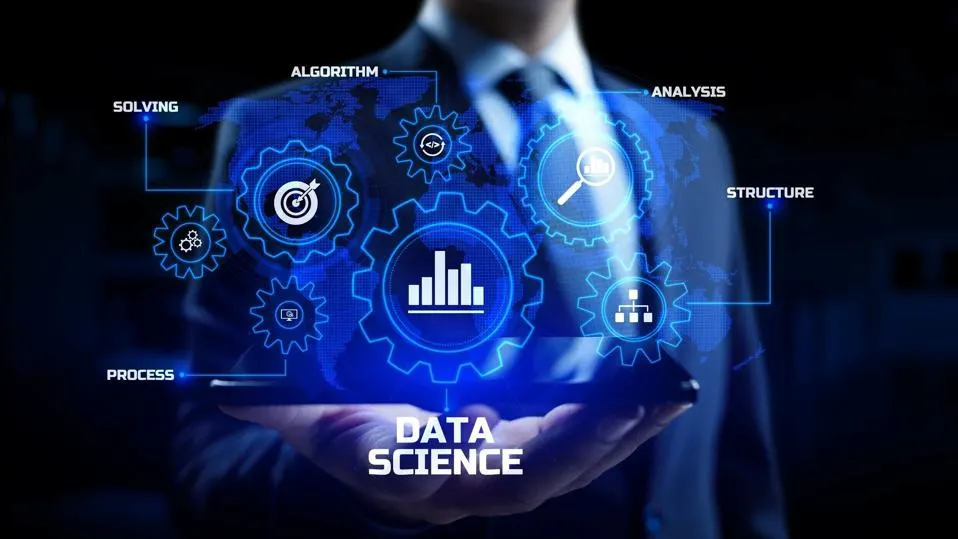Unlock the Secrets of Data Science: Your Ultimate Roadmap to Success!
Data science has emerged as a pivotal field in the modern business landscape, driving decisions through data-driven insights. From small startups to multinational corporations, the need for data scientists is at an all-time high. This article outlines a comprehensive roadmap to mastering data science, including the essential skills, tools, and pathways to success.

Importance of Data Scientist
Data scientists play a crucial role in today’s data-centric world. They extract meaningful insights from raw data, helping organizations make informed decisions. From predicting market trends to optimizing business operations, data scientists bridge the gap between complex datasets and actionable strategies.
Their expertise is vital in various industries, including healthcare, finance, e-commerce, and technology. By leveraging data, they improve efficiency, reduce costs, and enhance customer experiences.

Key Tools for Data Science
The data science ecosystem is rich with tools designed to handle different aspects of the data pipeline. Here are some of the key tools every aspiring data scientist should familiarize themselves with:
- Programming Languages: Python and R are the most popular for data manipulation, analysis, and visualization.
- Data Analysis and Visualization: Tools like Pandas, NumPy, Matplotlib, and Seaborn in Python enable efficient data wrangling and visualization.
- Machine Learning Libraries: Scikit-learn, TensorFlow, and PyTorch are essential for building and deploying machine learning models.
- Database Management: SQL is crucial for querying and managing structured data.
- Big Data Tools: Hadoop and Spark are used for processing large datasets.
- Version Control: Git helps manage changes in your codebase, facilitating collaborative work.

Data Science Roadmap
Embarking on a data science journey can be overwhelming without a clear roadmap. Below is a step-by-step guide to help you navigate through the essential components of data science.
1. Learning About Programming or Software Engineering
The foundation of data science lies in programming. Python and R are the go-to languages for data scientists due to their simplicity and the vast array of libraries available for data analysis, machine learning, and visualization.
How to Get Started:
- Begin with basic programming concepts: variables, loops, functions, and data structures.
- Explore libraries like Pandas for data manipulation and Matplotlib for visualization.
- Practice building small projects, such as analyzing datasets or automating simple tasks.
2. Learning About Data Collection and Cleaning
Raw data is often messy and incomplete, making data cleaning an essential skill. Understanding how to collect, preprocess, and clean data is critical to ensure the quality of your analysis.
Key Concepts:
- Data Collection: Learn web scraping techniques using Beautiful Soup or Scrapy, and work with APIs for real-time data.
- Data Cleaning: Handle missing data, outliers, and inconsistencies using Pandas or NumPy.
3. Business Acumen, Exploratory Data Analysis, and Storytelling
Data scientists must understand the business context to derive actionable insights. Exploratory Data Analysis (EDA) helps uncover patterns and relationships in the data, which are then communicated through storytelling.
How to Build These Skills:
- Develop a strong grasp of business processes and KPIs relevant to your industry.
- Use tools like Tableau or Power BI for interactive visualizations.
- Practice explaining your findings to non-technical stakeholders.
4. Applied Statistics and Mathematics
Data science heavily relies on statistics and mathematics. These principles underpin the models and algorithms used to analyze data.
Core Areas to Focus On:
- Probability and Statistics: Learn concepts such as distributions, hypothesis testing, and confidence intervals.
- Linear Algebra: Understand vectors, matrices, and their applications in machine learning.
- Calculus: Essential for optimization problems in machine learning models.
5. Machine Learning and AI
Machine learning (ML) and artificial intelligence (AI) are integral to data science. They enable predictive modeling and uncover complex patterns in data.
Learning Path:
- Start with basic ML algorithms: linear regression, decision trees, and k-means clustering.
- Progress to advanced techniques: neural networks, deep learning, and natural language processing.
- Leverage libraries like Scikit-learn, TensorFlow, and PyTorch to implement and experiment with models.
6. Track Your Learning Process
Tracking your progress is vital for continuous improvement. Maintaining a portfolio of projects can showcase your skills to potential employers.
Tips:
- Use platforms like GitHub to store and share your projects.
- Document your learning journey through blogs or notebooks.
- Regularly update your portfolio with new projects and insights.
7. Best Data Science Courses
To accelerate your learning, enroll in reputable data science courses. Here are some highly recommended ones:
- Coursera: “Data Science Specialization” by Johns Hopkins University.
- edX: “MicroMasters in Data Science” by UC San Diego.
- Udacity: “Data Scientist Nanodegree.”
- Kaggle: Free micro-courses on Python, ML, and EDA.

Data Science Career Scope
The demand for data scientists continues to grow across industries. Roles such as Data Analyst, Machine Learning Engineer, and AI Specialist are in high demand, offering competitive salaries and growth opportunities.

Industries and Applications
- Healthcare: Predictive analytics for patient care and disease management.
- Finance: Fraud detection and risk assessment.
- Retail: Customer segmentation and inventory optimization.
- Technology: Personalization algorithms and recommendation systems.

Conclusion
Mastering data science requires a blend of technical and business skills, constant learning, and hands-on practice. By following this roadmap, you can systematically build your expertise and advance your career in this exciting field. Whether you’re just starting or looking to deepen your knowledge, the journey of a data scientist is both challenging and rewarding. Keep learning, stay curious, and leverage data to drive impactful decisions.



